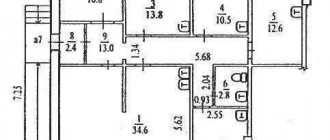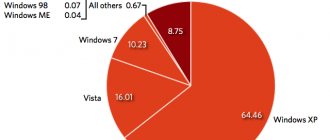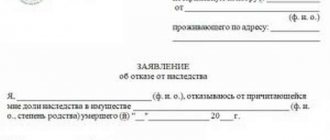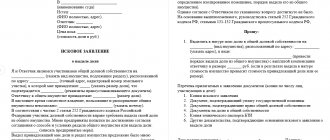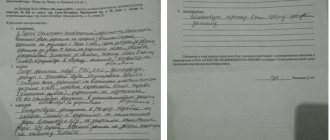The concept of preemptive right to purchase
The legislator establishes that in the case when the property mass is divided between several owners on the basis of equity participation, then in such a situation special relationships are established between them. And if one of the owners decides to get rid of his share, he is first obliged to notify all co-owners about this. This is necessary so that they can exercise their right of pre-emption to purchase a share.
The pre-emptive right to purchase is understood as civil rights of a subjective nature, which are granted to a specific person in the form of the possibility of making demands regarding the actions of another person.
Thus, this subject receives an advantage over the capabilities of other persons.
The main feature of this type of right, such as the right of pre-emption, is that it cannot exist independently without the application of other absolute rights. In domestic legislation, all issues that relate to this process are subject to the actions of Article 250 of the Civil Code of the Russian Federation.
Preemptive right to purchase a share
In a situation where several citizens are the owners of certain property and exercise their rights in accordance with agreements on shared ownership of property resources, the legislation carefully regulates the relations between them.
Article 250 of the Civil Code of the Russian Federation states that in the case when one of the co-owners decides to sell his share of the property, he is obliged to notify the other co-owners about this, who will make a decision regarding the repurchase of the share within a specified period of time. This is done in order to prevent the emergence of new participants in the shared ownership rights, who could provoke conflict situations through their actions.
The fact that the owner has decided to sell must be notified within a specified period and in a certain manner. If the co-owners waive their rights to pre-emption of the share, then in this case the property can be sold to any person who expresses a desire to purchase it.
Notice of intention to sell a share
In the case when a participant in shared ownership decides to get rid of the property mass belonging to him, he is obliged to take into account the interests and rights of other citizens who act as co-owners. Article 250 of the Civil Code of the Russian Federation states that before making a decision to sell his share, he is obliged to notify all owners of specific property about this. Thus, the right of first refusal will be exercised in their respect.
In order to comply with all formalities, the seller must send a written notice to all co-owners, which should contain information regarding the object of sale, its value and other features.
This notification can be made in any way that is extremely convenient for the seller. Among the notification methods, the most popular are:
- personal delivery of letters to the co-owners notifying them of the intention to sell their share;
- sending a notification using a registered telegram with notification of receipt. Here, sending can be carried out either by the seller himself or by a realtor who helps him complete the transaction. Moreover, in the latter case, the realtor must have written permission from the owner to carry out such an operation;
- carrying out the procedure with the active participation of notary offices.
Article 250 of the Civil Code of the Russian Federation states that notification must be in writing, but notification by email, using social networks or via SMS will not be considered properly executed.
The pre-emptive right to purchase the sold share of a joint-stock company provides that all co-owners of a particular property must decide on the advisability of this purchase. In the event that there is a waiver of the pre-emptive right to purchase, the owner of the part of the property being sold receives the right to transfer it into ownership to an outsider who is not one of the participants in the share agreements.
Who needs to be notified about the desire to sell a share in an apartment
The preemptive right to purchase a share is defined in Art. 250 Civil Code of the Russian Federation. It states that, regardless of the degree of relationship between the seller and the buyer, the main contenders for a paid portion of the apartment are other co-owners.
This means that if you decide to sell your share in a residential property, the first step is to notify the other co-owners of your intention.
It should also be taken into account that if you subsequently sell your share to other persons (not the owners of other parts) for an amount that is less than that which was offered to the co-owners, then such a transaction can be considered invalid.
In addition to notifying other apartment owners, the law does not oblige you to tell anyone about your plans to alienate the property.
You cannot assign your pre-emptive right to acquire a share. That is, only the co-owner needs to report the intention to sell part of the apartment, and not his relatives and authorized representatives.
Notification is only required in the case of the sale or exchange of part of the property. If you decide to give it as a gift, no one will have priority rights. However, if, under the guise of a gift agreement, a purchase and sale transaction is nevertheless carried out (money is transferred), then in the future interested parties will be able to recognize it as void. We have already talked about how to carry out this procedure correctly in the article “Agreement for the donation of a share in an apartment.”
Pre-emptive right period
Many users have a question: “How to bypass the pre-emptive right, and can this be done legally?” The most comprehensive answer to this problem is provided by the provisions of Article 250 of the Civil Code of the Russian Federation. It is stated here that the preemptive right of owners to specific property owned by them in equal shares is priority.
And the only opportunity for the seller to exercise his right to dispose of the property in relation to a third party is a complete waiver of the pre-emptive right of purchase on the part of all co-owners.
As for the specific deadlines for exercising the priority right to purchase shared ownership, the law sets a specific deadline at 3 months. If the seller sent notices and did not receive an intelligible response within 3 months, he has the right to sell his share to third parties.
As for the co-owners of the property mass, they have the right to consider the proposal within 3 months and make an appropriate decision. This period is allocated by law so that the owner of the shared part of the property assesses the feasibility of the transaction and makes a final decision.
Please note that the deadline may be adjusted. It is determined by law that if the seller changes the terms of purchase, then the new 3-month period begins to count from the moment the change was notified.
What to do if the right of pre-emption is violated
Often, the rights of co-owners of residential premises when one of them sells their share is violated for one reason or another. This could be simple ignorance of the law, or a desire to “annoy” your roommates.
Violation of rights can occur in two cases:
- the share was sold without any notice to other participants in the shared ownership;
- the share was sold before the statutory period of 1 month before receiving a refusal.
In both of these cases, the legislator is on the side of the co-owners. Each of them can, within 3 months, file a lawsuit and restore their rights. However, according to the resolution of the Plenum of the Supreme Court of the Russian Federation No. 10 and the resolution of the Supreme Arbitration Court of the Russian Federation No. 22 of April 29, 2010 “On issues arising in the resolution of disputes related to the protection of property rights,” this three-month period is calculated from the moment when the violation was discovered.
Example. Sokolov and Bragin owned a two-room apartment in equal shares (½ each). Sokolov did not actually live in the apartment. In 2015, he decided to sell his part of the housing, but did not notify Bragin, but made a deal with Ivanova. She, in turn, also did not apply for living in the apartment. In [current_date format='Y'] year, Bragin collected documents to obtain a loan and, among other things, ordered an extract from the Unified State Register of Real Estate, so he learned that the second half of the apartment actually no longer belonged to Sokolov. Then he went to court, and the deal to sell part of Ivanova’s home was declared illegal, despite the fact that 3 years had passed since it was completed.
Statement of claim
In order to defend your priority right to acquire part of the shared property, you must draw up a statement of claim and apply with it to a district court of general jurisdiction. The claim is drawn up according to the general rules specified in Art. 131-132 Code of Civil Procedure of the Russian Federation.
It should be noted that the defendants will be both the buyer and the seller, and the third party will be the Rosreest authority that made the changes to the Unified State Register.
Required documents
Along with the claim, the following package of documents is sent to the justice authority:
- extract from the Unified State Register of Real Estate for the plaintiff’s property (certificate of ownership – until 2021);
- a copy of the applicant's passport;
- document providing the basis for the plaintiff’s acquisition of rights to a share of the apartment (privatization agreement, certificate of inheritance, etc.);
- an extract from the house register (apartment card) about persons registered in the housing;
- technical documentation for the property;
- receipt of payment of state duty;
- a receipt for crediting money to the account of the Department of the Judicial Department under the Armed Forces of the Russian Federation in the amount of the cost of part of the apartment (it is equal to the amount for which the unscrupulous seller has already sold part of the housing, i.e. is the price of his share);
- copies of statements for each defendant and for the judge.
Deadlines
It is impossible to determine the exact time frame for consideration of the claim. It all depends on the positions of the parties, the need to appeal decisions, and in some cases, the need to conduct various examinations. For example, handwriting analysis, if there are doubts about the reality of the notification. However, the court of first instance will definitely not make a decision earlier than 2 months from the date of filing the claim.
Price
The amount of the mandatory fee when filing a claim in the court of first instance depends on the value of the claim. That is, from the amount for which the share has already been sold. The amount of the state duty is regulated by the provisions of Art. 333.19 Tax Code of the Russian Federation.
Waiver of preemptive right to purchase
If the co-owners do not consider it advisable to buy out a share of the company’s property, then in this case they are obliged to formalize a refusal to exercise the pre-emptive right to purchase. It must be drawn up in writing and certified by a notary.
The legislator establishes that all owners of shared shares in a specific property may refuse to exercise their priority rights to repurchase property assets.
However, to do this, they need to respond to the notice in writing and indicate that they waive the exercise of their rights and have no objections to the free sale of the share.
If several co-owners decide to buy out the seller’s share, then he makes the choice between them independently, or between them a concession of the preemptive right to purchase the share is made in relation to a specific citizen.
How and why is a notarized waiver of the pre-emptive right to purchase issued?
A refusal is an official response to the seller's notification of an upcoming transaction. Regardless of how the notice of sale was sent, the waiver of the pre-emptive right to purchase must be made in writing.
The text clearly states that the citizen will not exercise his right and claim a share of the plot in the future. The document is certified by a notary. All these measures are aimed at protecting the seller - in case the co-owner changes his mind and files a lawsuit.
The preemptive right is transferred to the heirs. When one of the co-owners dies, notice of sale must be sent to his successors.
Refusal is not mandatory. Participants in shared ownership have the right to ignore the notice. However, obtaining waiver documents is the only way to quickly sell a share to a third party. Otherwise, the seller must wait 30 days.
If the seller breaks the law and sells the land share early, the person whose rights were violated will be able to file a lawsuit within three months from the moment he learned of the violation. The statement of claim will indicate the requirement to transfer the rights and obligations of the buyer to the participant in shared ownership.
Waiver papers are attached to the documents when registering the sale and purchase. They serve as proof of the absence of an obstacle.
There are two ways to submit a refusal:
- Independent registration and sending by registered mail with notification of delivery by mail.
- Contact a notary.
The second method is recommended. If you decide to file a waiver yourself, consult a lawyer. This can be done on our website.
Violation of the right of pre-emption
Clause 3 of Article 250 of the Civil Code of the Russian Federation states that the process of exercising priority rights to buy out a share of a joint-stock company must take place according to the standards established by law. Otherwise, all violations will be noted in law and violators will be subject to penalties for ignoring the law.
A violation of the pre-emptive right to purchase may be ignoring the legally established principles of transactions regarding property that is in shared ownership. It is also a violation to ignore the 3-month period during which the co-owners make the final decision.
